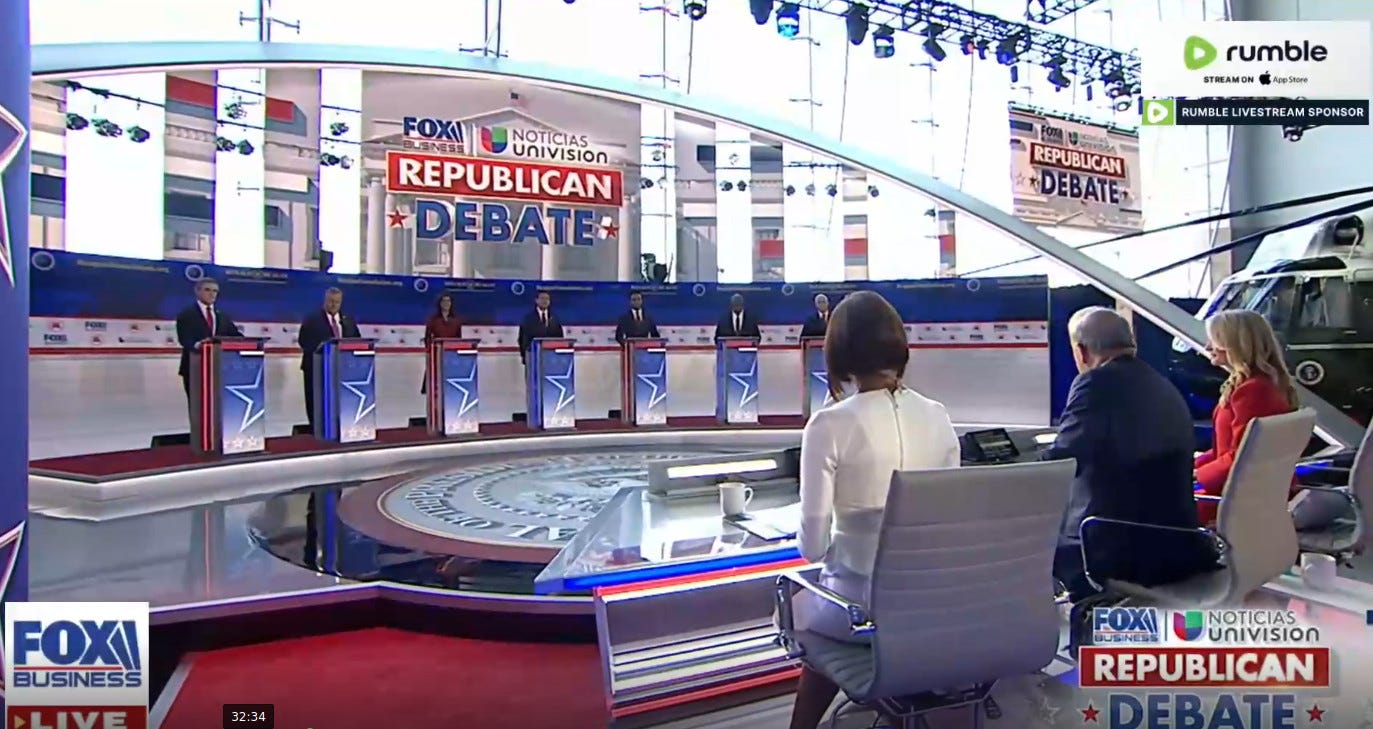Faith issues take back seat at Republican presidential debates
Ramaswamy makes appeals to Christian conservatives despite his Hinduism

Although evangelical Christians are one of the key bases of the Republican Party, you’d never know it from watching yesterday’s debate featuring the seven major candidates seeking to wrest their party’s presidential nominati…


